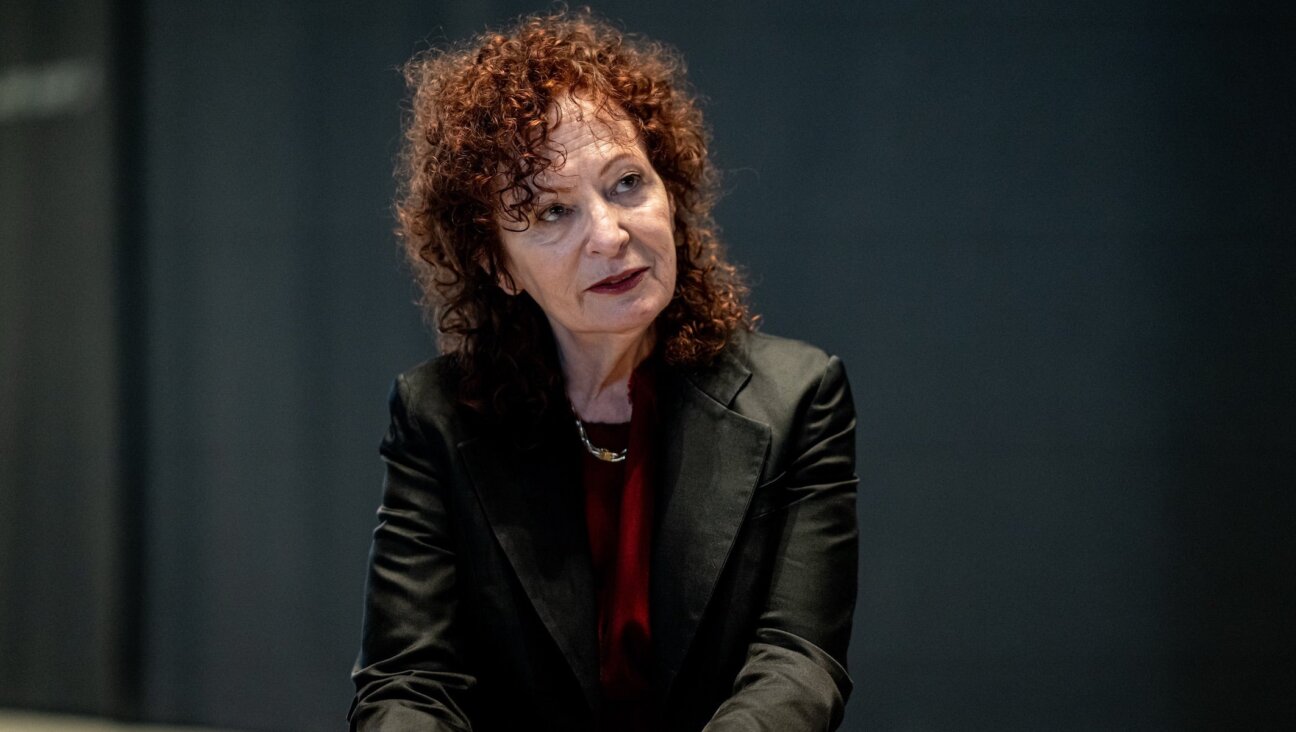At Reform Biennial, Yoffie Pushes For Jewish Eating
When Rabbi Eric Yoffie, president of the Union for Reform Judaism, delivers his Saturday-morning sermon at the group’s biennial conference, he sets the movement’s priorities for the coming two years. His message in Toronto this month was: Let’s eat like Jews.
He was not asking Reform Jews to observe kosher laws. Rather, acknowledging America’s increased interest in food choices in general, and pointing to Jewish values concerning stewardship of the earth, sustainable agriculture and treatment of workers, Yoffie urged Reform Jews to develop consciously Jewish and ethical food policies for themselves and their congregations.
“This is not about kashrut,” he said as he outlined the main points of the Reform movement’s new Green Table/Just Table Initiative. “We need to think about how the food we eat advances the values we hold as Reform Jews.”
That, he said, is how Reform Jews can eat food that is “proper and appropriate” — the literal meaning of the Hebrew word kosher.
Among Yoffie’s specifics: Eat 20 percent less red meat; it’s good for the environment and for your health, he said. Plant synagogue gardens. Join community-supported agriculture programs. Pay attention to how meat animals are raised and how food workers are treated. Develop a consciously Jewish dietary policy for your synagogue. Eat slower and together, suggesting that synagogues hold regular communal Shabbat meals.
“Above all,” Yoffie said, “let’s avoid the temptation to do nothing.”
For much of its history, the Reform approach to Jewish dietary practice was standoffish at best. In its founding Pittsburgh Platform of 1885, Reform Judaism declared Jewish rituals of dress and diet outmoded, including kashrut. But over the past generation or so, hostility toward these observances has lessened, particularly among younger Reform Jews.
A 2007 movement survey of 14,000 Reform activists and clergy revealed that 58 percent of those older than 40 brought shellfish into their homes, compared to 39 percent of the younger crowd. Forty-three percent of the older group ate pork at home, compared to 29 percent of those 39 and younger; and 16 percent of younger Reform Jews ate only kosher-certified meat, compared to 9 percent of their elders.
“The younger generation is more ritually comfortable across a wide range of practices, from kashrut to prayer,” said Rabbi Daniel Freelander, senior vice president of the Union for Reform Judaism.
Cautioning that the new focus was not about kashrut, Yoffie referred to last year’s scandals at the Agriprocessors kosher meatpacking plant.
“We do not accept the authority of the kashrut establishment, and its problems are for others to resolve,” he said.
Reaction to the initiative was generally positive.
“I think the recommendations are well founded,” said Michael Holberg, president of Congregation Sha’arai Shomayim in Mobile, Ala.
Holberg groaned when Yoffie first mentioned cutting back on red meat, but Holberg seemed more persuaded once Yoffie explained his position.
“I’m not in favor of advocating not eating meat, but a reduction not only has health benefits, it’s a wise Jewish decision,” Holberg said.
Sha’arai Shomayim planted a synagogue garden last year, one of a growing number of Reform congregations to do so.
Irene Rothschild, president of Congregation Emanu-El Israel in Greensburg, Pa., says she’s been encouraging her synagogue to adopt ecological practices, such as long-life light bulbs and recyclable dishware, but hadn’t made the same Jewish connection between environmentalism and food consumption.
“Food has not been a focus in our congregation, but after listening to him, I think I can push for it now,” she said.
















